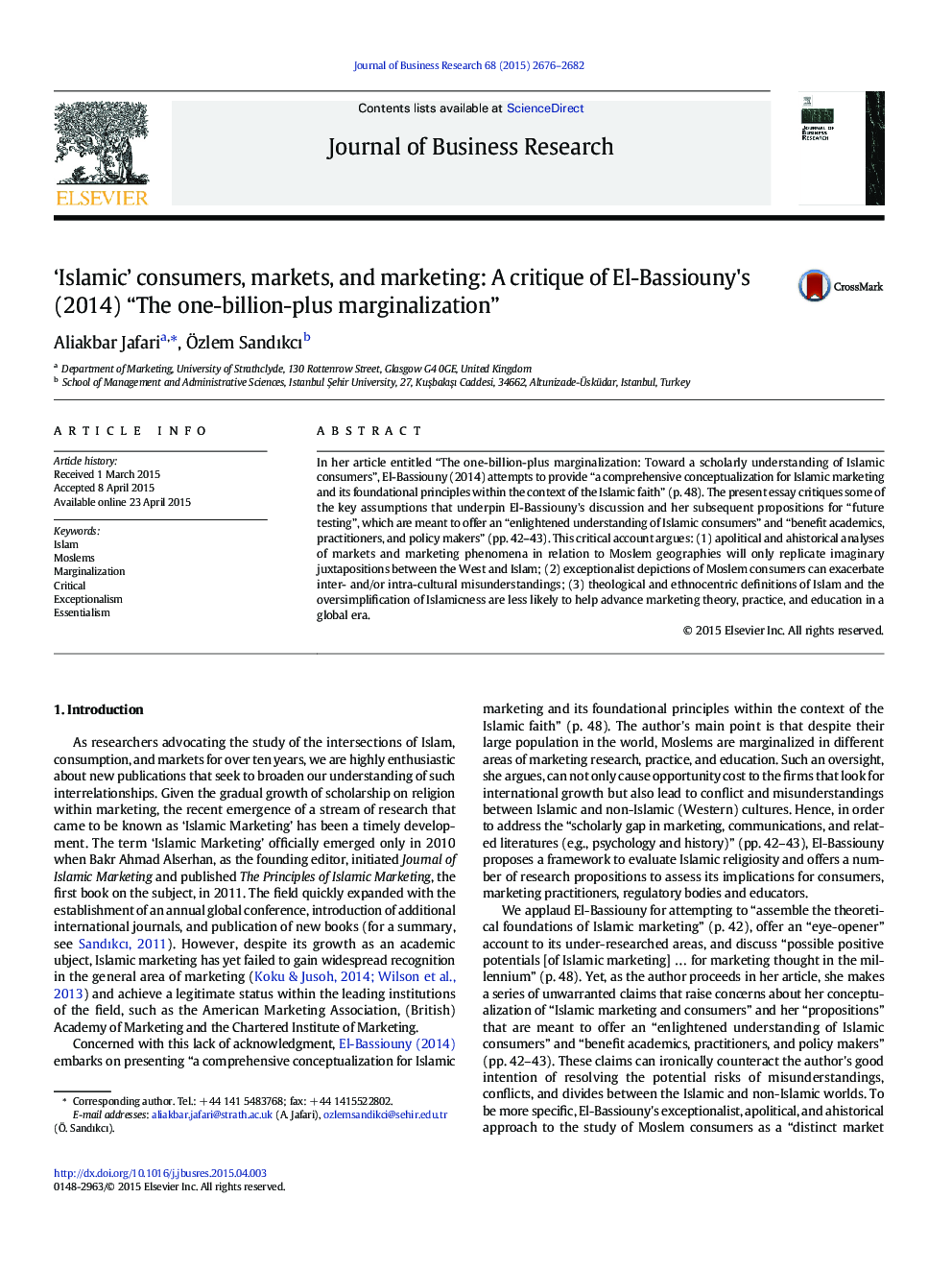| Article ID | Journal | Published Year | Pages | File Type |
|---|---|---|---|---|
| 1017064 | Journal of Business Research | 2015 | 7 Pages |
•El-Bassiouny's (2014) analysis is simplistic, apolitical and ahistorical.•Exceptionalist depictions of Moslems exacerbate intercultural misunderstandings.•Ethnocentric definitions of Islam obstruct theory development in marketing.•Moslem consumers are ‘normal’ market actors.
In her article entitled “The one-billion-plus marginalization: Toward a scholarly understanding of Islamic consumers”, El-Bassiouny (2014) attempts to provide “a comprehensive conceptualization for Islamic marketing and its foundational principles within the context of the Islamic faith” (p. 48). The present essay critiques some of the key assumptions that underpin El-Bassiouny's discussion and her subsequent propositions for “future testing”, which are meant to offer an “enlightened understanding of Islamic consumers” and “benefit academics, practitioners, and policy makers” (pp. 42–43). This critical account argues: (1) apolitical and ahistorical analyses of markets and marketing phenomena in relation to Moslem geographies will only replicate imaginary juxtapositions between the West and Islam; (2) exceptionalist depictions of Moslem consumers can exacerbate inter- and/or intra-cultural misunderstandings; (3) theological and ethnocentric definitions of Islam and the oversimplification of Islamicness are less likely to help advance marketing theory, practice, and education in a global era.
